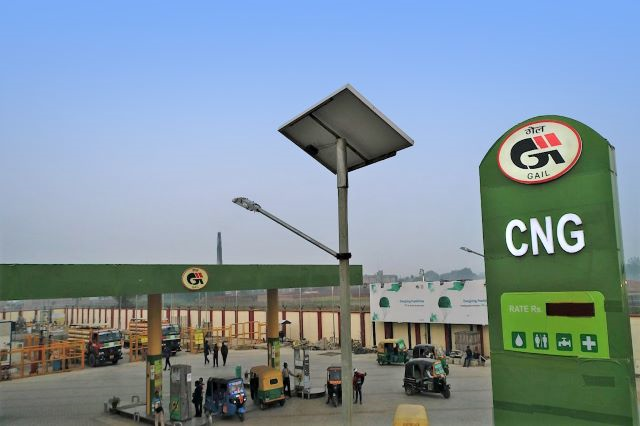News Details

Reduced domestic gas supply to compel Indian city gas companies to opt for spot LNG
Indian Government has slashed by up to 20% the supplies of cheaper domestically produced natural gas to city retailers from October 16. The move has forced the CNG suppliers to opt for imported spot LNG or seek more expensive domestically produced high pressure high temperature (HPHT) gas and also new well/well intervention gas (NWG) from the state owned upstream major ONGC.
The CNG and the City Gas Development (CGD) companies have estimated that mix of domestic gas and imported spot LNG or expensive HPHT may result into around Rs 4-6/kg hike in retail automobile CNG prices for the customers across India.
However, government can help CGD companies by reducing exercise duty on CNG. Currently, the Central Government levies a 14% excise duty on CNG, which translates into Rs 14-15 per kg. If exercise duty is reduced it will help CGD companies absorb rise in cost and will not have to pass on the increased cost to consumers.
Production from old fields also known as legacy fields, whose price is regulated by the Government and which are used to feed city gas retailers, has been falling by up to 5% annually due to natural decline that has set in. This has led to supply cuts to city gas retailers, said media report quoting government sources.
While the input gas for piped cooking gas that households get is protected, the Government has cut supply of raw material for CNG. Gas from legacy fields used to meet 90% of the demand for CNG in May 2023 and has progressively fallen. The supply was cut to just 50.75% of the CNG demand beginning October 16 from 67.74% last month.
Indraprastha Gas Limited, which retails CNG in the national capital and Mumbai-based Mahanagar Gas Limited in regulatory filings stated that supplies of domestically produced gas, which was available at a capped rate half of the imported price, has been cut.
"The company gets domestic gas allocation for meeting the requirement of CNG sales volumes at the pricing fixed by the Government (presently at $6.5 per million British thermal unit). Based on communication received by the company from GAIL (India) Limtited (the nodal agency for domestic gas allocation), this is to inform that there has been a major reduction in domestic gas allocation to the company effective from October 16, 2024," IGL said in a filing.
The revised domestic gas allocation to IGL is about 21% less than previous allocation, "which will have an adverse impact on profitability of the company", it said, adding that it is in discussions with key stakeholders to minimise the impact.
Separately, MGL said as per Policy Guideline dated August 10, 2022, issued by the Ministry of Petroleum and Natural Gas, domestically produced Administrative Price Mechanisms (APM) natural gas is to be allocated to city gas distribution (CGD) companies for priority segments, specifically domestic piped natural gas and CNG (transport).
The policy states that the supply of domestic gas to CGD entities will be made only up to the quantity available and allocated to GAIL (India) limited for these segments.
"...the company is exploring options of sourcing gas through domestically produced high pressure high temperature (HPHT) gas, new well/well intervention gas (NWG) from ONGC and benchmark-linked long-term gas contracts, so as to continue to provide gas to its customers with price stability," MGL added.
Adani Total Gas Limted — the other significant city gas retailer — in its filing said the APM priced domestic gas allocation to the company has been reduced by about 16%, effective October 16, 2024, compared to the earlier allocation.
"While the company shall take all steps needed to optimise the profitability, it may however, be noted that pending the resolution, there would be an adverse impact on the profitability of the company," it said.

